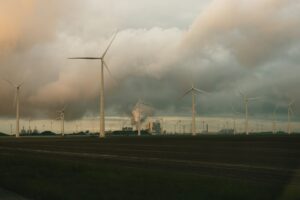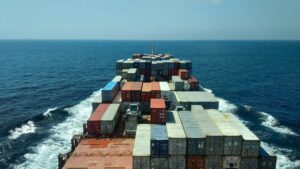Read the paper ‘European elections 2024: Political scenarios’
The 2024 European elections will be a key moment for the future of the European Green Deal and the Union’s climate policies. Over the past five years, Von der Leyen Commission has proposed and built the policy framework for achieving climate neutrality by 2050. Will next Commission and European Parliament continue on this path, ensuring that the 2030 targets needed to avert the most dangerous effects of climate change are met? Most importantly, will they be able to make the energy transition sustainable from a socio-economic perspective?
The start of the election campaign would suggest possible substantial changes in European climate and environmental policies. To test how far these might become reality, we have elaborated four political scenarios based on projections available as of January 2024, reflecting also the dynamics between political groups and Member States. For this analysis, we considered changes in both institutions representing Member States (the European Council and the Council of the European Union) and in the European Parliament, which is directly elected by citizens.
From the analysis of the composition of the European Council, we can observe a considerable difference with the political equilibrium of 2019. However, the internal political balance is not expected to change much over the next months. Undoubtedly, countries led by centre-right or right-wing governments will retain a majority in the European Council as it was in mid-2023.
What does it mean for climate? There is not necessarily a correlation between political affiliation and climate policies. In many countries, climate is a cross-cutting issue. In some cases, the transition is framed as a development opportunity and as a result climate goals are supported regardless of the ruling party or coalition. To check for possible correlations, we analysed a number of Council’s voting on energy and climate issues over the past year. While centre-right-led Governments are more likely to vote against climate policies than centre or centre-left governments, most conservative European governments often voted in favour of climate.
Considering past dynamics, the composition of the European Council would not in itself be an obstacle to electing a Commission President who continues the work done in recent years in terms of the European Green Deal, but it could reduce the ambition of next Commission President on climate.
In the European Parliament, we can expect a similar situation with respect to the resilience of EU climate policies. The loss of influence of historically pro-European and more climate-friendly parties, combined with the increased representation of the Euro-sceptic conservative right-wing political groups, could reduce climate ambitions. The analysis of voting on climate legislation over the past year shows a strong diversity of thinking on climate among the European right-wing parties. The European political groups expected to face the largest losses are the European Greens and the centrist group Renew. The EPP, to which Von der Leyen belongs, appears to have regained consensus in the last two months. These numbers could be interpreted as a criticism towards the Green Deal and centrist policy.
Within the current European Parliament and in the vast majority of votes, the majority that supported EU climate policies was very solid. However, looking at specific measures such as the vote on regulation 631 on CO2 standards for cars and on EPBD directive, we can observe that the majority would be narrow now compared to when the votes where casted. Similarly, the majority in favour of the inclusion of fossil gas in the EU taxonomy would be stronger now than in 2022. It emerges that the vote on CO2 standards for cars would not pass with the current projections, even if by just 13 votes. While we can assume that climate will not be set aside by the next Parliament, we can highlight that the balance is sliding towards climate sceptical narratives. This will likely have an impact on the EU’s economy since some sectors are already disadvantaged compared to other global powers.
Considering that both Governments and the EU Parliament compete in electing the future Commission, four scenarios have been developed:
- A Conservative Europe. The outcome is a coalition expressing a centre-right Commission. The main centre-right political group, the European People’s Party (EPP) could obtain the support of other conservative parties thus gaining a stronger majority than other groups and forming a coalition with the Socialists and the Liberals. This coalition could choose a more conservative leader at the head of the Commission and would be less ambitious on climate than the previous one. This is partly because ofthe EPP, which is shifting its position towards protecting traditional sectors and away from the innovation needed to achieve climate goals.
- The Continuity of the Green Deal.This is the same Grandcoalition as today (EPP, Socialists, Liberals) which would support Von der Leyen as President of the European Commission for a second term. In this scenario, the Commission would continue the work it has undertaken, despite a weakened majority compared to 2019 but could still count on the external support of the European Greens.
- Europe of the right. It is a right-wing-only majority coalition without the Socialists but with the support of the liberals (EPP, Liberals, Right, Ultra-right). Such an alliance shows some difficulties because of the diversity of parties’ position not only on climate but also on fundamental issues such as European integration, the war in Ukraine, migration and the respect of the rule of law. Nevertheless, this coalition would reach the majority of MEPs even excluding the most radical far right parties (Rassemblement National, Alternative fur Deutschland and PiS).
- Climate ambition. This outcome is made up by the political groups that have always voted for climate: EPP, Socialists, Liberals and Greens. They would enjoy a larger voting majority than in other scenarios and would be more ambitious in ensuring the implementation of climate goals. They could give a second mandate to Von der Leyen as Commission President. However, the election campaign of centre-right parties has started with strong criticism of the Green Deal. The political feasibility of such scenario appears therefore low at the moment.
Although there are political shifts underway especially in the narrative of centre-right and right-wing political forces – the more so in comparison to the 2019 elections – these should not be such as to lead to an upheaval of current European climate policies. This is with the exception of a win of right-wing parties and a political agreement for rewiring the entire Green Deal framework. However, the most likely scenarios show a weakened Commission on climate and thus the risk of becoming less proactive during precisely the critical decade for limiting the impacts of climate change.
Like in 2019, the centre-right family of the EPP holds the keys to the political outcome. The rise of more conservative and sceptical right-wing parties, such as Brothers of Italy represented by the ECR family in the European Parliament, is unclear: will they opt for a conservative Europe, thus accepting the co-existence with liberal and progressive forces and effectively a continuity of the Green Deal (albeit weakened), or will they try to form a new coalition of right-wing parties, in discontinuity with the Green Deal, which risks however falling short of the votes to form a majority also because of different views on climate policy? In this game there is a player who seems to win in every scenario, the Italian PM.
In the first case Brothers of Italy could increase its legitimacy at the EU level and be fully recognised among the parties that will elect the new Commission. In the second one, if the far right “coalition” prevails, Brothers of Italy would still be a powerful actor in EU politics.
Read the paper ‘European elections 2024: Political scenarios’
Photo by Fabian Holtappels







